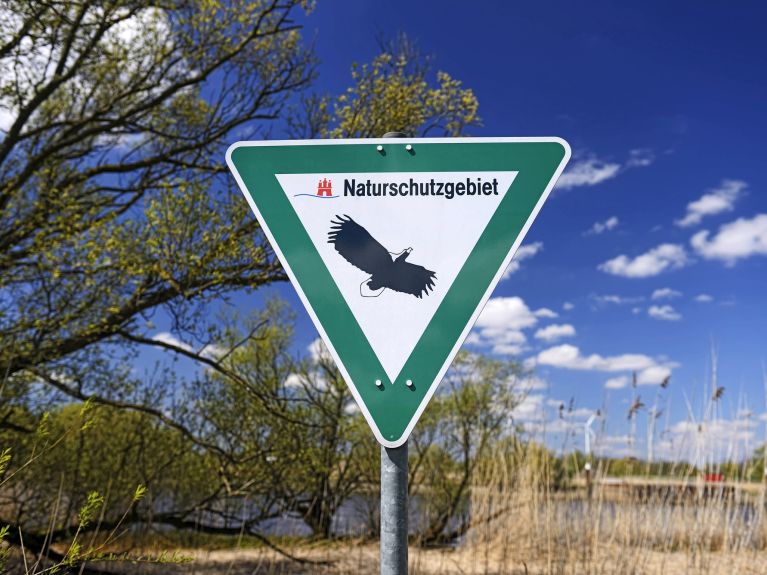Environmental institutions in Germany
Go from here to find ministries, government offices, research institutes and official boards and committees charged with the task of protecting our valuable natural world.

Federal Agency for Nature Conservation
In Germany Blattfusskrebse (a species of crab) and Apollofalter (Apollo moths) are in danger of extinction, which is why they are put on a “Red List”. The Federal Agency for Nature Conservation (Bundesamt für Naturschutz, BfN) publishes the Red Lists of endangered biotopes and plant and animal species, and advises the Federal Ministry for the Environment, Nature Conservation, Building and Atomic Safety (Bundesministerium für Umwelt, Naturschutz, Bau und Reaktorsicherheit, BMUB). It also sponsors nature conservation projects, oversees research and regulates the import and export of protected plant and animal species.
Federal Office for Protection against Radiation
Whether you want to know how long you can spend in the sun or about the effects of using mobile communications – the Federal Office for Protection against Radiation (BfS - Bundesamt für Strahlenschutz) provides you with the recommendations given by the experts. Its responsibilities also include nuclear waste disposal and transport, nuclear reactor safety and how to deal with and protect against exposure to radiation.
Federal Institute for Geo-Sciences and Raw Materials
Using raw materials economically: the staff at the Federal Institute for Geo-Sciences and Raw Materials (BGR – Bundesanstalt für Geowissenschaften und Rohstoffe) advise the ministries on questions concerning applied geo-sciences and geo-scientific issues in environmental and resources conservation. The BGR employees are commissioned by the Federal Government to carry out projects in developing countries in particular and to undertake assignments in research and development.
Federal Institute for Hydrography
How clean are the German waterways? When does it make sense to straighten the course of a river? The Federal Institute for Hydrography (BfG - Bundesanstalt für Gewässerkunde) works in the fields of hydrography, water management and waterways protection. It supports the authorities for Water and Shipping Management (WSV - Wasser- und Schifffahrtsverwaltung) in planning, building and expanding, operating and maintaining the national waterways.
Federal Office for Agriculture and Food
The Federal Office for Agriculture and Food (BLE – Bundesanstalt für Landwirtschaft und Ernährung) has a wide range of tasks in the agricultural, food and consumer protection sector. As a market regulatory authority, it supports the enforcement of European agricultural policy and is responsible for the admission and inspection of border-crossing goods. It also monitors fishing and the use of renewable raw materials.
The Federal Environmental Agency
For humanity and the environment: to preserve nature as the foundation of life, for future generations as well, and to promote environmental thinking and action as a matter of course – that is the goal of the Federal Environmental Agency (Umweltbundesamt, UBA) in Dessau-Roßlau.
The German Council of Environmental Advisors
Clean air, clean water, clean soil? The German Council of Environmental Advisors (Rat von Sachverständigen für Umweltfragen, SRU), Environmental Council for short, is commissioned by the Federal Government to assess environmental quality. The results of the expert reports are used to advise all authorities involved in environmental policy.
German Advisory Council on Global Change
The ozone hole is growing. What should we do about it? As an independent consulting committee, the German Advisory Council on Global Change (Wissenschaftliche Beirat der Bundesregierung Globale Umweltveränderungen, WBGU) is responsible for answering such questions. Its reports help address the core problems of global change.
